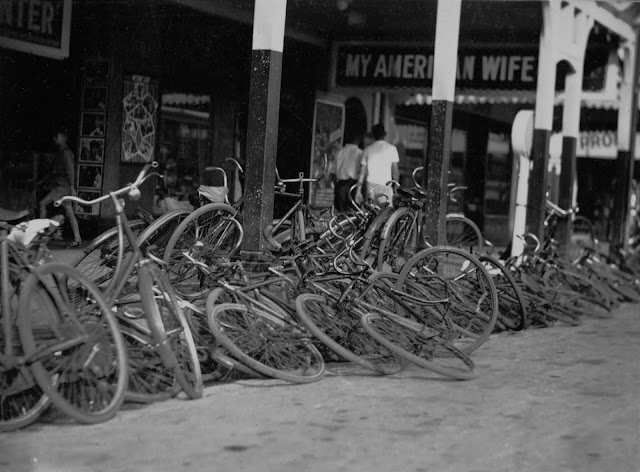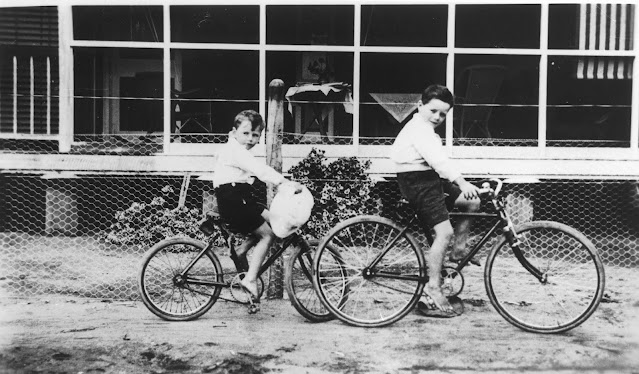Bicycles outside Palace Cinema in Cairns, 1937.
Or maybe we just have short term memory loss. It's actually called "generational forgetting" - how we have little regarded for what came before us.
Here are vintage photos from the State of Queensland, Australia that show the bicycle was a normal transport form all over the state for decades.
Bicycles parked outside the City Baths in Maryborough. 1940s.
Bicycles parked in Mackay, 1948.
Bicycles parked outside the Lands and Works Office, 1904.
Bicycles parked outside the Hotel Boyd in Mount Isa, Queensland, 1952.

Unidentified father and son posing with a bicycle for a travelling photographer
A modern Australian shearer, ca. 1900
Boys on bikes at Barramornie Station, August 1924
Shearer on the move with his bicycle, ca. 1906






